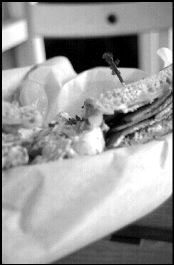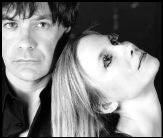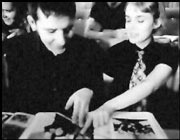IS ROCK poetry? Stephen Burt, professor of poetry and literature at Minnesota’s Macalester College, argues that while poets once used rock ‘n’ roll references and lyrics primarily as a means of representing adolescence, there is now a sizable contingent of poets who view rock not as a shared touchstone of youth but rather as a vital subcultural entity.
Seattle Weekly: Do the connections between contemporary poetry and punk and indie rock have more to do with aesthetic affinities or their shared statuses as marginalized or “outsider” art forms?
Stephen Burt: In both fields, artists try to link one to the other, with varying degrees of convincingness. Plenty of rock musicians (perhaps more so 10 years ago than now) and plenty of poets will try to explain how their sound or their art seems, to them, tightly linked to their marginal status or to the economic choices they make as producers, distributors, and consumers. The so-called language writers of the 1970s made many of the same late-Marxist claims about their styles, for example, as certain British post-punk [bands] from ’79 (Scritti Politti, Gang of Four), though neither group then seemed aware of the other. Certain young poets now, though, might draw on both.
Explain “shared knowledge” between poetry and rock.
Many contemporary poets know that their work appeals to—and asks for intense attention from—a small circle of committed readers, many of whom are poets themselves. Underground rock bands often approach their art in the same way (or are believed to do so, or say they do so). So when a contemporary poet uses an underground rock act in a poem, the poem can suggest that a certain rock song (or band) and a certain contemporary poem (or poet) are doing the same kind of thing, though in different media. It’s a way in which poets have long used painting and sculpture and (for all sorts of reasons) jazz; it is, though, a fairly new way to use rock and roll. That’s what I argue, anyway.
Do you agree with poet David Wojahn’s assertion that “contemporary poetry has received more of a benefit from rock than rock has gained from contemporary poetry”?
So far, yes, though, as I also claim, there are now rock bands and singers who use modern poems: The Pastels and Lois Maffeo, for example, both sing texts from Auden. There’s also the matter of hyperliterate, semi- or sometimes-rock singer-songwriters like Bob Dylan, or, for that matter, Leonard Cohen, whose books of nonsong poetry have won many admirers.
David Berman—better songwriter or poet?
I prefer his poems to the Silver Jews records I’ve heard, but I haven’t heard their latest, which everyone says is their best. Franklin Bruno, on the other hand, is a poet worth reading but a red-hot, versatile, and brilliant songwriter, both solo and with his band, Nothing Painted Blue.
As pop music studies become more accepted in academia, do they become a little less “rock ‘n’ roll”?
How “rock ‘n’ roll” could anything called “pop music studies” be to begin with? Right now I’m in favor of anything that helps talented pop songwriters and innovative rock bands get taken seriously as artists who make works of art—that means encouraging sympathetic criticism, which the academy at its rare best can do; it also means helping musicians get health insurance and looking at new compensation systems, all the concerns Jenny Toomey and the Future of Music Coalition are exploring. I wonder if academic pop music studies will have a role to play in those concerns—perhaps one distantly analogous (only distantly) to the role the academy plays for young poets.
Paul Fontana
Stephen Burt will talk about “Words and Guitar” at 9 a.m. on Fri., April 12.








